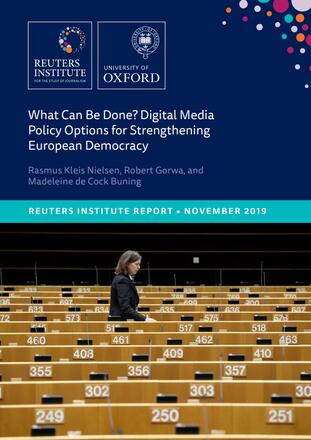According to the introduction, “independent professional journalism plays an important role in democracy, but it faces a number of important challenges that threaten that role and, by extension, threaten European democracy”.
The analysis examines 4 sides of the issue: Free Expression and Media Freedom, Disinformation and Online Harms, Competition and Data Protection, News Media Policy. Significantly, almost 90 million citizens across the European Union live in countries with serious press freedom concerns.
This study suggests media policy measures that:
- protect journalists and media outlets from threats to their independence and freedom of expression;
- provide a level playing field and support for sustainable news business;
- be oriented towards the digital, mobile, and platform dominated future.
The three above mentioned conditions come in order of priority: the authors stress that “without freedom, no amount of funding or investment in the future will ensure independent professional journalism”.
The first step of the suggested options should be to address the implementation gap between what elected officials have committed to on paper and what governments do in practice.
The second step could be to link access to EU funds to performance in an annual rule of law review that includes a focus on free expression and media freedom.
According to the study, the three most promising policy responses are:
(a) reform and potential expansion of existing forms of support for private-sector media;
(b) recognition of the role that genuinely independent, adequately funded, public-service media operating across all platforms can have;
(c) rapid reform to ease the creation and funding of non-profit news media.
Media literacy projects, oversight mechanism, and data access can be important tools. “We have not identified a silver bullet, and indeed, we do not believe there is any”, authors confirm. “Those looking for an easy solution will not find it”. A more holistic approach is welcome. “It is the time to discuss fast and listen quick”.
Tags: European policies and legislation Freedom of expression Media freedom Media pluralism Media ownership Media literacyThe content of this article can be used according to the terms of Creative Commons: Attribution-NonCommercial 4.0 International (CC BY-NC 4.0) . To do so use the the wording "this article was originally published on the Resource Centre on Media Freedom in Europe" including a direct active link to the original article page.


